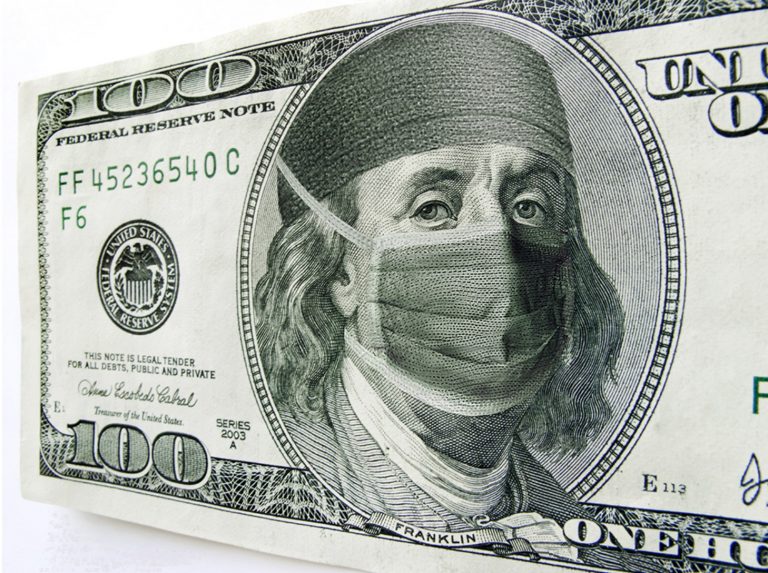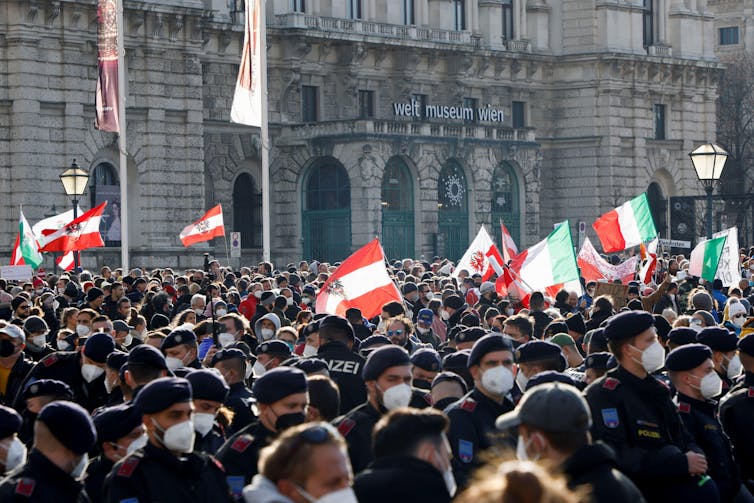
Philip Clarke , Laurence Roope, Raymond Duch
In many countries, COVID vaccination has been viewed as a race, with the finishing line being double vaccination of a high proportion of the population. Unfortunately, those countries who were initially successful face the challenge of a runner that has reached what they thought was the finishing line being told to run on, as more vaccinations are required.
Africa faces a different challenge. Despite the success of a handful of countries, with just 9% of the continent’s total population fully vaccinated, the race has yet to commence.
In response to the emergence of omicron, many countries are now offering “booster” vaccinations. It is uncertain whether additional COVID vaccinations will be needed in future, but governments should be prepared for a situation where ongoing vaccination cycles are required to suppress COVID for many years.
Alongside the development of vaccines that are effective against emerging variants, a major challenge will be getting people regularly vaccinated. Flu vaccination provides a guide to the possible scale of this challenge. Take the US, where the Centers for Disease Control and Prevention recommends almost universal flu vaccination every season, yet only half the population follow these guidelines. Beneath this average lies large racial and geographic disparities.
Many governments have dabbled with incentives such as cash, shopping vouchers and lotteries to increase vaccination uptake, but largely as one-off initiatives. A key component of an effective long-term COVID vaccination strategy is likely to involve vaccine incentives, in the form of either carrots or sticks.
Much can be learned from the experience of countries that have linked family welfare payments to childhood vaccination status. Australia has done so for over two decades, and it has been credited with raising vaccination rates to among the highest in the world.
A key aspect of COVID vaccination is that the magnitude of its benefits to individuals and to society vary widely. For the young, the chance of severe illness from COVID is small, but the likelihood of transmission is greater due to higher levels of contact from education, work and socialising. Conversely, the personal benefits to the elderly of being vaccinated are high, but societal benefits outside institutional settings, such as nursing homes, are relatively low.
An economic rationale for carrot-type incentives is that vaccination is a way of rewarding the societal benefit it generates. Another approach is to penalise those who are unvaccinated using stick-based incentives, such as mandatory vaccination or requiring the unvaccinated to pay an additional “health tax”, as has recently been proposed in Quebec, Canada. While fines and penalties are less costly to government than incentive payments, they can be polarising. Recent moves by the Austrian government to make COVID vaccination compulsory have brought thousands onto the streets in public demonstrations.

Cash incentives could have an important role in increasing vaccine uptake in low-and middle-income countries, such as most of sub-Saharan Africa. Beyond altruism, the global societal benefits of high vaccine uptake in Africa are great.
Omicron has made it all too clear that new, more transmissible variants can quickly have a global impact. As a recent expert group commissioned by the UK government concluded, increased international vaccination has the potential to reduce the emergence and establishment of variants, globally.
While there is a strong rationale for using incentives as part of the global vaccine rollout, we need more evidence to better predict what effect they will have. Importantly, evidence on the effectiveness of different incentives for COVID vaccination has been mixed. For example, while a recent Swedish experimental study showed that even a modest monetary incentive of US$24 (£18) could raise COVID vaccination rates, various evaluations of vaccine lotteries in the US have drawn opposite conclusions about their effectiveness.
Field experiment
To find out what might work in Africa, we are collaborating with researchers from the University of Ghana on a field experiment. This will evaluate whether a US$3 (£2.2) or US$10 incentive payment, allocated using mobile phone credits, can boost vaccination uptake.
If effective, how could such payments be financed? Dr Rabah Arezki, a former chief economist of the African Development Bank, has estimated that a system of effective cash payment across Africa would add around US$9 billion to an estimated US$15 billion cost for providing and administering COVID vaccines across Africa.
Such sums, particularly if required on an ongoing basis, would need to be financed by the international community. Rather than relying on the current system of voluntary donations from wealthy countries, the world needs a new type of tax that could be used to combat COVID and prevent future pandemics.
Here there are strong economic arguments for a tax on international airline travel. Global population mixing, which even at the height of the pandemic amounted to around 5 million international passenger movements per day (down from 12 million in pre-COVID times), is what makes pandemics so hard to control in the modern world.
Incentives, funded by an airline tax of a few dollars per ticket, could help us edge towards the elusive pandemic finishing line.